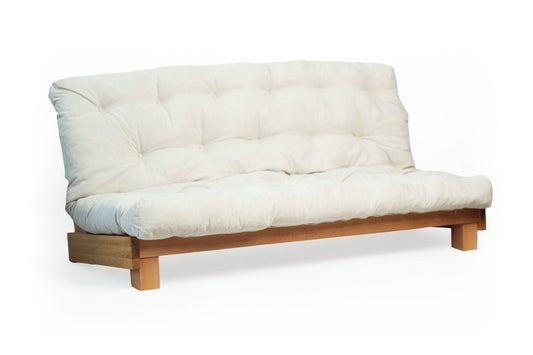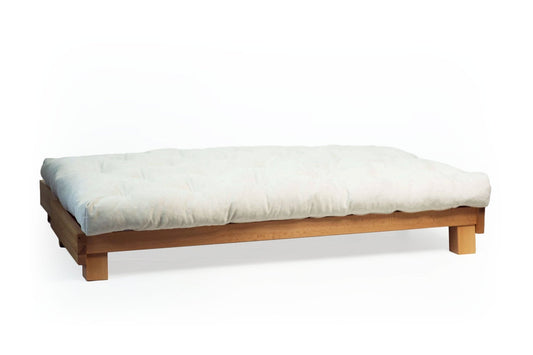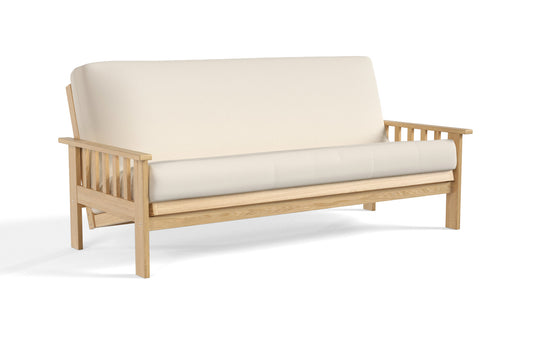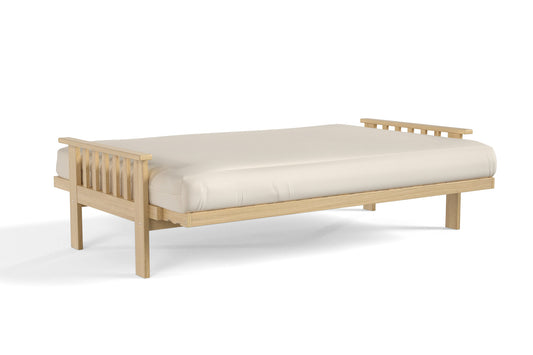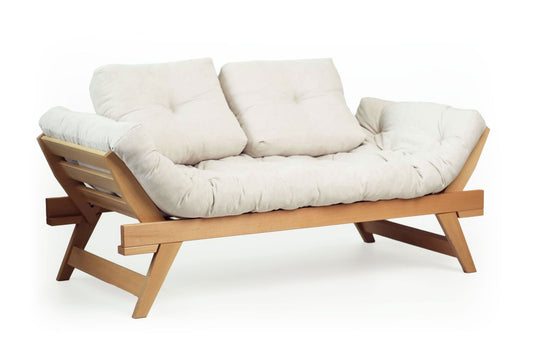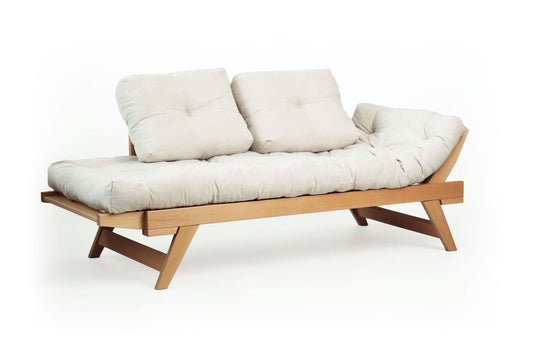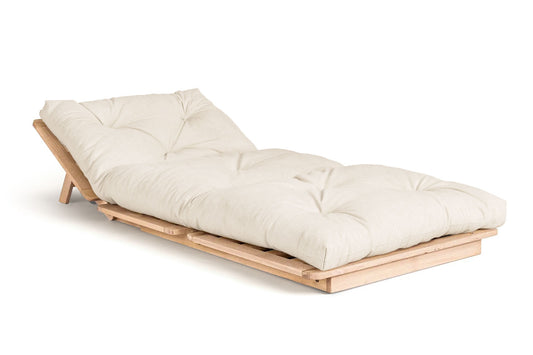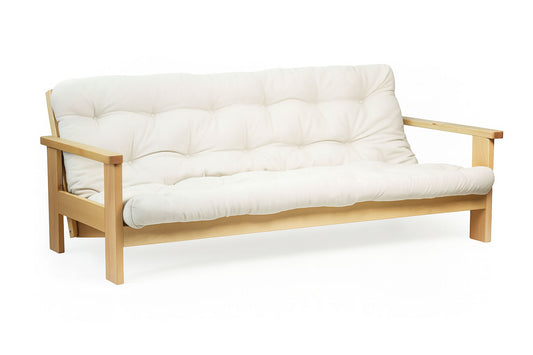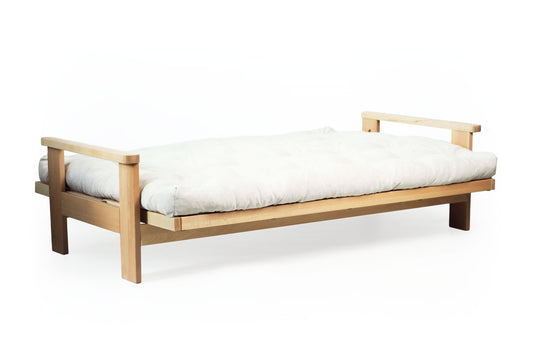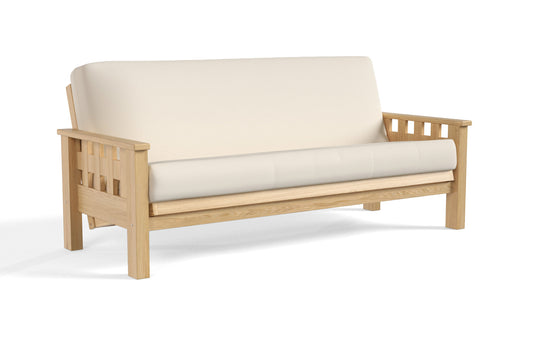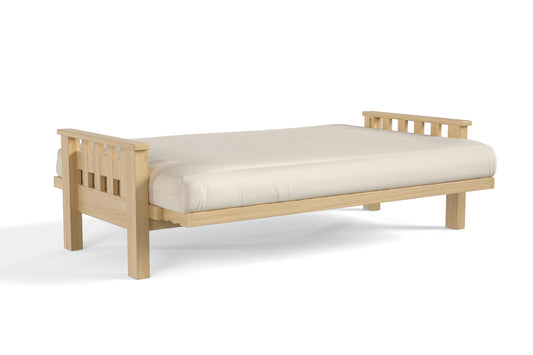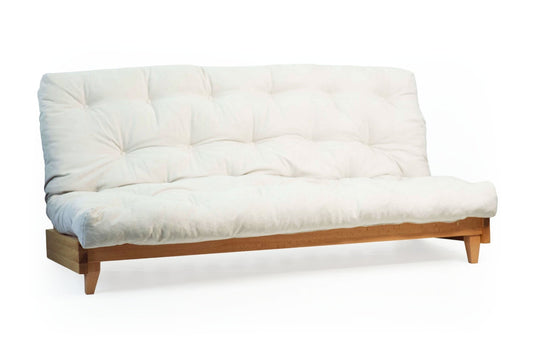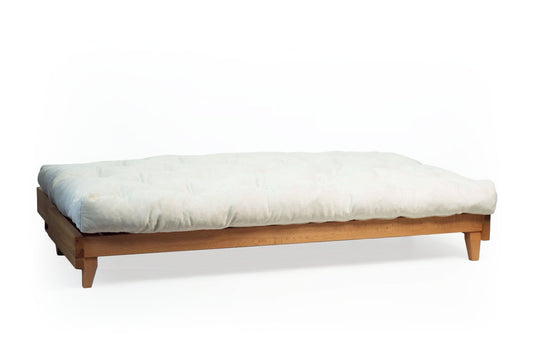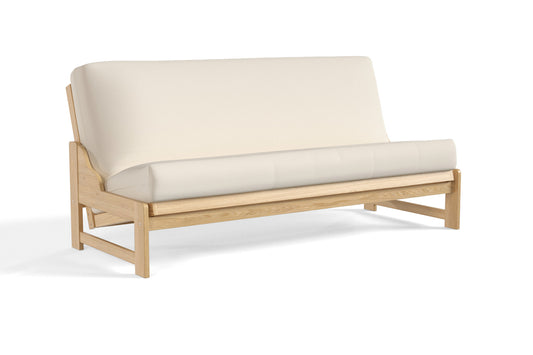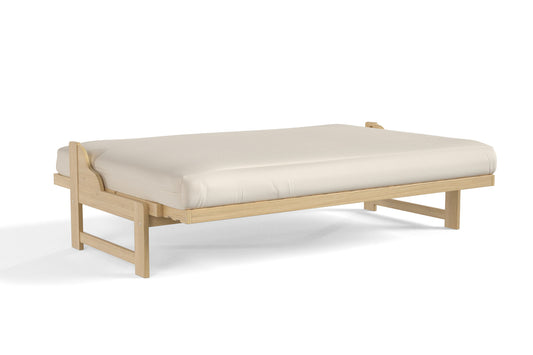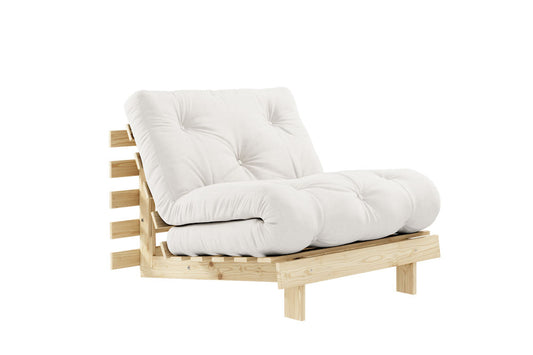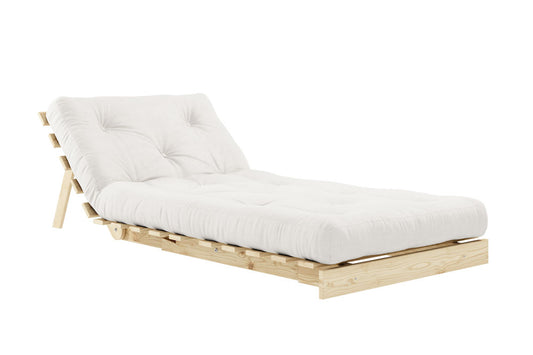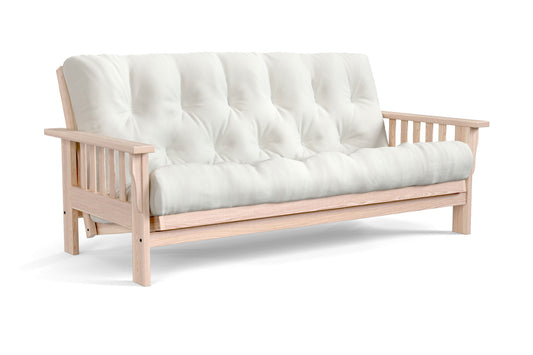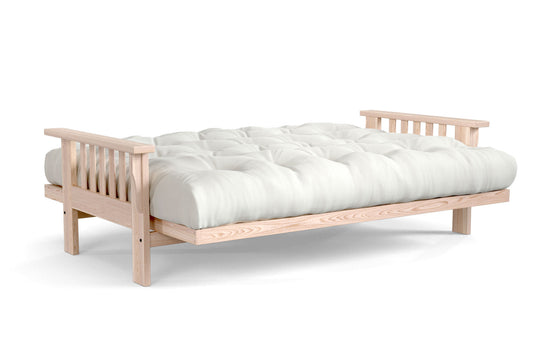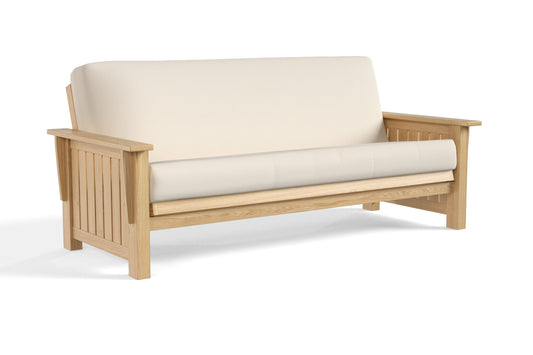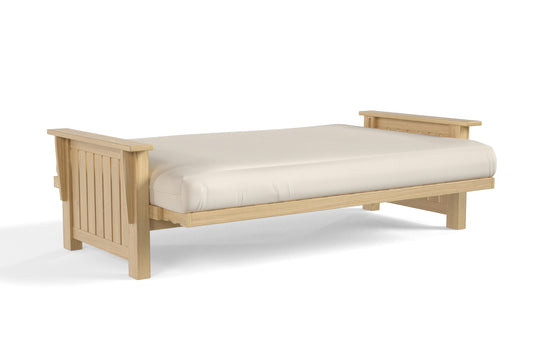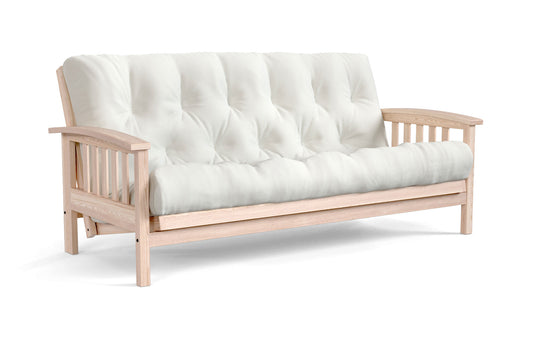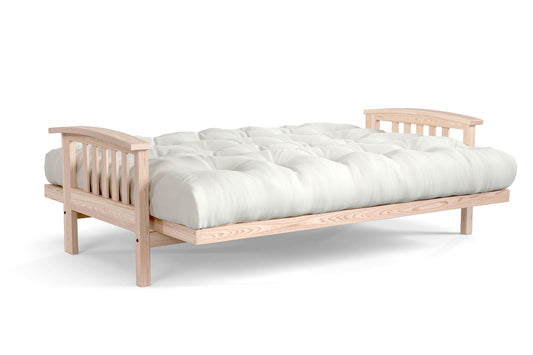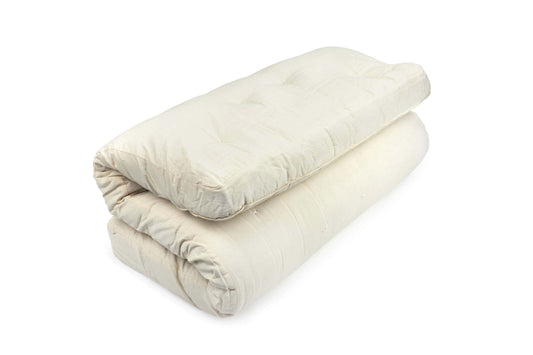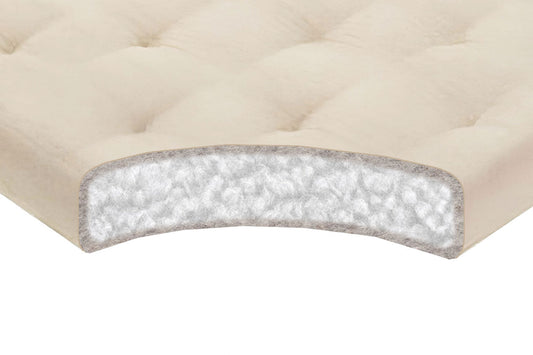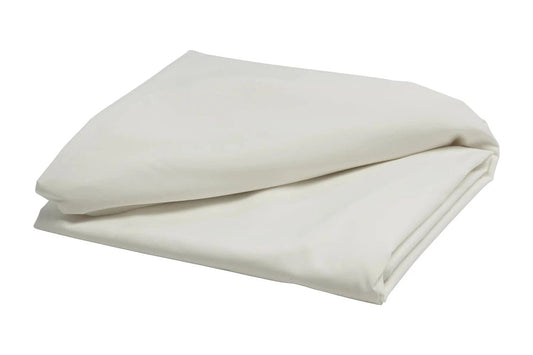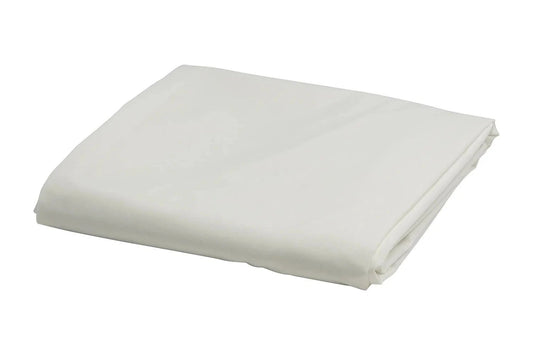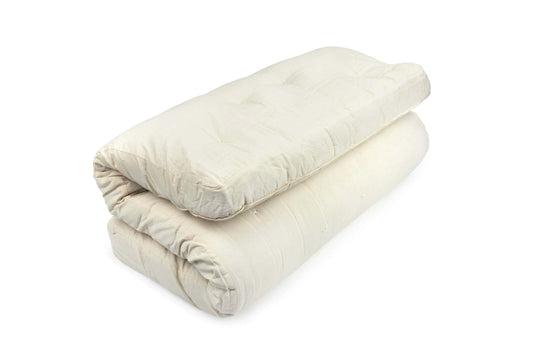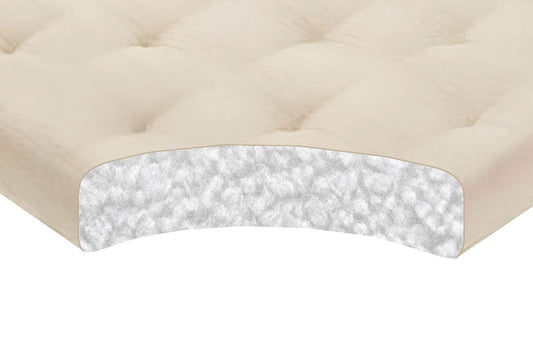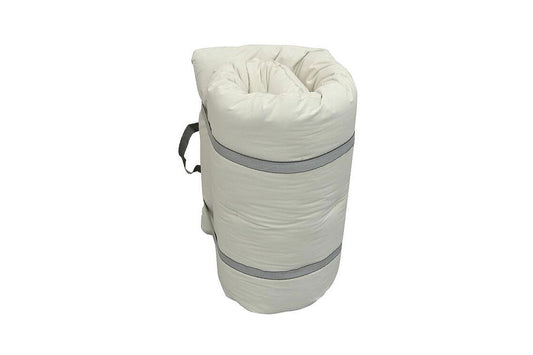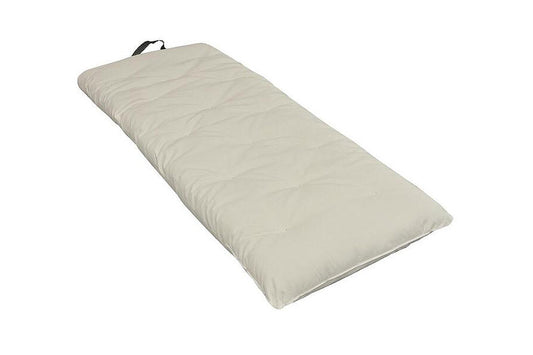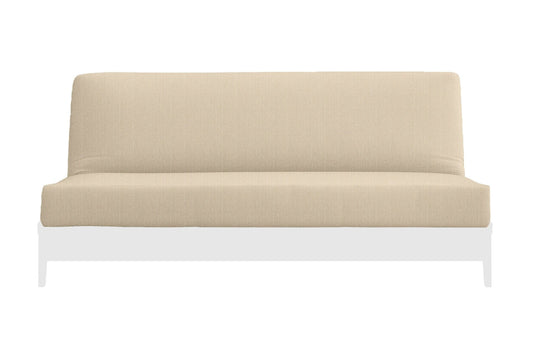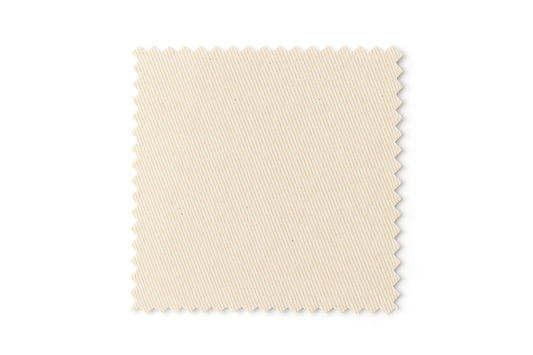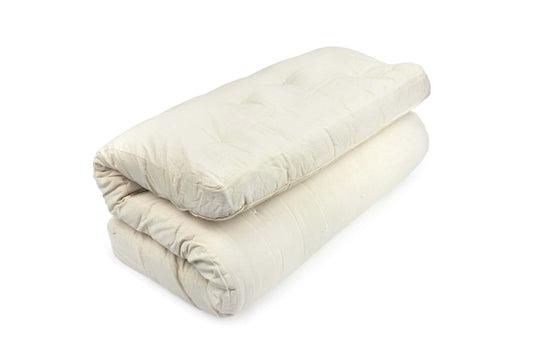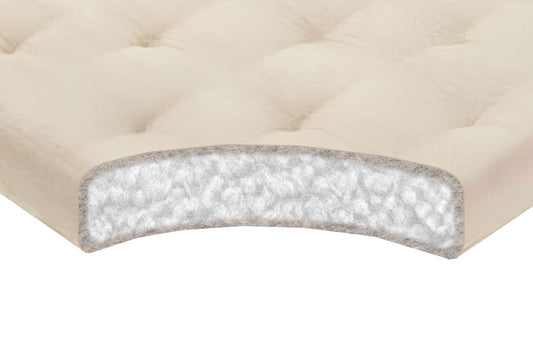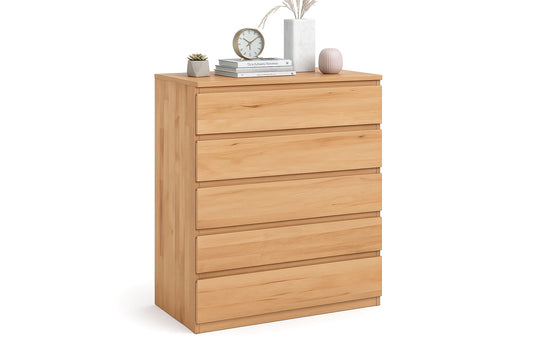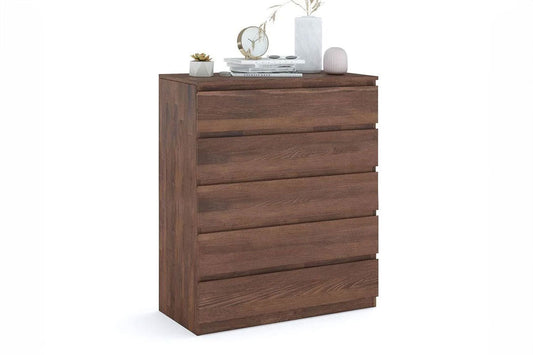
Solid Hardwood Futon Frames: Why Real Wood Beats Metal, MDF, and Cheap Alternatives
Share
When it comes to furniture that combines comfort, strength, and timeless design, solid hardwood futon frames stand in a class of their own. Unlike metal or MDF futons that wear down over time, a real hardwood futon offers natural durability, safe materials, and a long lifespan — making it one of the best investments you can make for your home.
What Is a Solid Hardwood Futon Frame?
A solid hardwood futon frame is built entirely from natural hardwood — such as beech, oak, maple, mahogany, or rubberwood — instead of engineered wood or metal. These materials give the frame a sturdy foundation that resists sagging, creaking, and cracking even with daily use. The wood’s natural grain, texture, and color variations also make every frame unique, bringing warmth and authenticity to your living space.
Why Most Futon Frames Aren’t Hardwood (and Why That Matters)
Many inexpensive futon frames found online or in big-box stores are made from softwood, veneer, or particleboard. While they may look like wood, these materials often contain formaldehyde-based adhesives, off-gas VOCs, and lose strength within a few years. Metal futons can squeak, rust, and lack the warmth and aesthetic appeal of real wood. A solid hardwood futon frame, by contrast, is naturally strong, toxin-free, and designed to last for decades, not just a few seasons.
Hardwood vs. MDF, Metal, and Softwood: What’s the Difference?
| Material | Durability | Lifespan | Repairability | Finish & Feel |
|---|---|---|---|---|
| Solid Hardwood | Extremely strong; supports heavy daily use | 20+ years | Can be sanded, refinished, or repaired | Natural wood grain, rich texture, ages beautifully |
| MDF / Particleboard | Weak joints, prone to swelling and cracks | 2–5 years | Cannot be repaired once damaged | Fake veneer look, chips easily |
| Softwood | Moderate strength, dents easily | 5–10 years | Limited repair options | Rustic appearance but less durable |
| Metal | Strong but noisy and rigid | 10–15 years | Rusts, cannot be refinished | Cold, industrial look |
Solid Hardwood Futon Frames: Real Wood Strength Without the Wobble
-
El Paso Eco Futon Sofa Bed
Regular price From $689.99Regular priceUnit price / per$819.99Sale price From $689.99Sale -
Taurus Eco Futon Sofa Bed
Regular price From $519.99Regular priceUnit price / per$699.99Sale price From $519.99Sale -
Long Beach Daybed Sofa Bed
Regular price From $659.99Regular priceUnit price / per$739.99Sale price From $659.99Sale -
Hitachi Tri-Fold Futon Sofa Bed
Regular price From $249.99Regular priceUnit price / per$599.99Sale price From $249.99Sale -
Elk Grove Eco Futon Sofa Bed
Regular price From $759.99Regular priceUnit price / per$869.99Sale price From $759.99Sale -
Aries Eco Futon Sofa Bed
Regular price From $569.99Regular priceUnit price / per$699.99Sale price From $569.99Sale -
Akron Eco Futon Sofa Bed
Regular price From $689.99Regular priceUnit price / per$819.99Sale price From $689.99Sale -
Virgo Eco Futon Sofa Bed
Regular price From $589.99Regular priceUnit price / per$699.99Sale price From $589.99Sale -
Sendai Tri-Fold Futon Sofa Bed
Regular price From $299.99Regular priceUnit price / per$349.99Sale price From $299.99Sale -
Mission Flat Arm Amish-Made American Oak Futon Sofa Bed
Regular price From $959.99Regular priceUnit price / per$1,199.99Sale price From $959.99Sale -
Libra Eco Futon Sofa Bed
Regular price From $619.99Regular priceUnit price / per$699.99Sale price From $619.99Sale -
Mission Bent Arm Amish-Made American Oak Futon Sofa Bed
Regular price From $1,019.99Regular priceUnit price / per$1,299.99Sale price From $1,019.99Sale
Benefits of a Hardwood Futon Frame
Strength and Stability
Hardwood futon frames are engineered to support both sitting and sleeping positions with ease. The density of solid wood ensures minimal movement or bending, even with frequent use. Frames like the Hitachi Tri-Fold Futon Frame exemplify this durability, providing lasting comfort in a compact and adaptable design.
Safe, Non-Toxic Construction
Unlike mass-produced futons coated in chemical lacquers, our wooden futon frames are non-toxic and are finished with natural oils and water-based glues — no formaldehyde, no VOCs, no hidden toxins. This makes them ideal for healthy homes and eco-conscious buyers.
Sustainability That Lasts
Our solid hardwood futons are crafted from responsibly sourced wood, including FSC-certified materials. Their longevity means fewer replacements, less waste, and a lower carbon footprint compared to disposable furniture made from particleboard or veneer.
Natural Beauty and Warmth
Hardwood’s visible grain and natural tone create an organic, timeless look that softens any modern interior. Each frame develops a unique patina over time, adding depth and character. Hardwood also complements minimalist and Japanese-inspired interiors, where simplicity and craftsmanship define the aesthetic.
Long-Term Value
While a solid hardwood futon bed may cost more upfront, it delivers unmatched longevity and performance. It won’t sag, squeak, or warp, and it can easily be refinished or repaired — unlike metal or MDF alternatives. This makes it both a sustainable and financially smart investment.

How to Tell if a Futon Frame Is Real Hardwood
Not all “wood” futon frames are truly hardwood. Here’s how to identify the real thing:
- Check the edges: Real hardwood has visible end grain; veneers show a smooth band or edge tape.
- Feel the weight: Hardwood futons are noticeably heavier and denser than particleboard.
- Inspect the grain: Genuine wood has natural variations — veneer patterns repeat uniformly.
- Tap test: Hardwood sounds solid; MDF or veneer produces a dull, hollow tone.
- Ask about materials: Look for species names like beech, oak, maple, or mahogany — not “engineered wood.”
Designs and Features
At Comfort Pure, our solid hardwood futon frames come in various configurations and finishes to suit your home:
- Tri-Fold Futons — such as the Hitachi Natural Tri-Fold Futon, which folds compactly for small spaces or guest rooms.
- Bi-Fold Frames — like the Elk Grove Bi-Fold Futon, offering a sofa-to-bed transition in seconds.
- Finishes — available in natural, smoke, walnut, or teak tones, each highlighting the wood’s organic character.

How Hardwood Actually Lasts 20+ Years
Hardwood futon frames are designed to age gracefully. Over time, they can be sanded, refinished, or even repainted for a refreshed look — something impossible with MDF or metal frames. This means a single solid wood futon can serve you for decades with simple care:
- Dust regularly with a soft cloth to preserve its finish.
- Avoid moisture and clean gently with a damp cloth when needed.
- Reapply natural oil finishes periodically to protect and enrich the wood.
- Retighten joints as needed for lasting stability.
How to Choose the Right Hardwood Futon Frame
- Size: Decide whether you need a twin, full, or queen frame based on room dimensions.
- Use: For daily use, choose denser hardwoods like beech or oak; for guest rooms, lighter mahogany or rubberwood works well.
- Finish: Choose a tone that complements your interior — from natural and minimalist to deep walnut or smoke.
- Features: Look for tri-fold or storage-friendly designs if you value flexibility and function.
FAQs About Hardwood Futon Frames
Are solid hardwood futon frames heavy?
Yes, they’re heavier than metal or MDF frames — but that’s a sign of strength. The density of hardwood provides unmatched stability and support.
Can I refinish or paint my hardwood futon?
Absolutely. You can sand and stain your futon frame to achieve a new look or restore its natural beauty.
Do hardwood futons squeak?
No — unlike metal frames, solid wood construction with tight joinery eliminates noise and movement.
The Perfect Blend of Form and Function
A solid hardwood futon frame is more than furniture — it’s a statement of quality, sustainability, and timeless design. Whether you’re creating a guest space, a minimalist studio, or a cozy living area, hardwood brings natural warmth and long-lasting value.
Explore our solid hardwood futons and platform beds to find the perfect piece that fits your space and lifestyle. Crafted for strength, beauty, and environmental integrity, these hardwood designs are built to serve you for decades — naturally.


